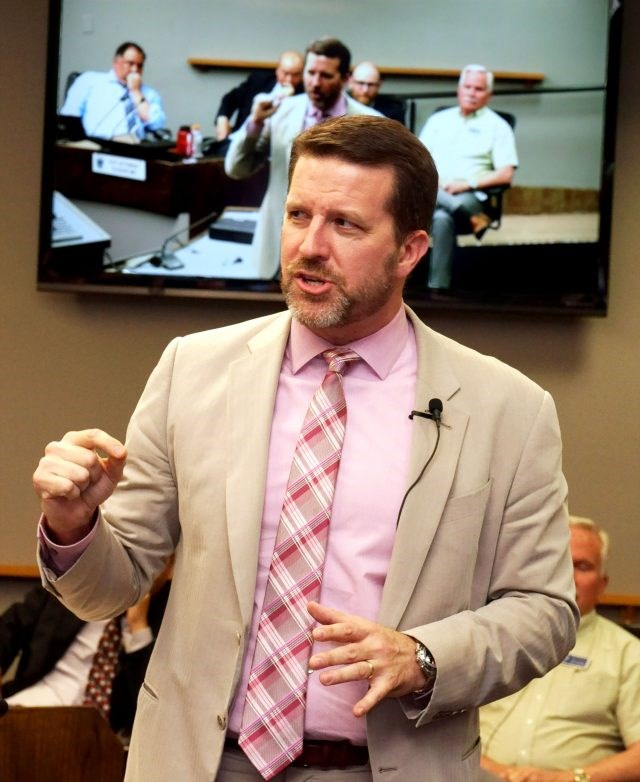This content was originally published by the Longmont Observer and is licensed under a Creative Commons license.
Longmont City Council will ultimately decide during Tuesday's city council meeting whether or not to sign an agreement with two oil and gas companies to prohibit drilling within city limits.
If passed, the City of Longmont will lease 516 acres of mineral rights, owned by the city, to Cub Creek Energy and pay TOP Operating Company $3 million.
The agreement, which was clarified in last week's public forum, is not a "no-fracking" agreement, but rather a "no-surface-level" agreement with TOP Operating Company and Cub Creek Energy.
Horizontal drilling could occur from as far away as two miles from the city, according to Dale Rademacher, general manager of Longmont's Public Works and Natural Resources Department.
Should the agreement pass, the removal of oil and gas facilities in the City of Longmont would be carried out across different phases.
Under phase one, and upon execution of the agreement, they would:
- forego the right to drill on the 3 well sites south of highway 119: one in Sherwood open space, and two in Sandstone district park.
- Plug and abandon the Powell well, near the train that goes out to Sandstone ranch, within 120 days.
Phase 2 will commence upon the completion of the Olander well site, outside city limits:
- relinquish right to drill on seven wells site around Union Reservoir
- relinquish two tank battery sites around Union Reservoir
Phase 3 commences upon the completion of the "Knight" well site, between Hwy 66 and Weld County Road 3:
- Relinquish the "Smith" well site, north of Union Reservoir.
Should the possibility arise that the the oil and gas companies don't fully relinquish, the agreement "unravels" and there is no payment of the funds.
Public Forum
Instead of the scheduled city council study session, the City of Longmont opted to hold a public forum on Tuesday, May 15, 2018, to inform the census about the regulations and steps being taken regarding the agreement.
Longmont City Staff Assistant City Attorney Dan Kramer and General Manager of Longmont's Public Works and Natural Resources Department Dale Rademacher rehashed the same presentation given a week prior with the introduction of the ordinance's first reading. New slides were added to provide some historical background into Longmont's past with the gas and oil companies.
It was followed by a Q&A session, which according to Assistant City Manager Sandi Seader, saw almost 200 questions asked via note cards by the 40-50 people in attendance, although it is not sure how many of them were actual Longmont residents, as that information was not collected.
Questions were pooled into categories to avoid repetition.
In addition to collecting questions on cards, the public was encouraged to participate in, and took advantage of, direct followup questions and during period where any question could be asked, near the end of the meeting.
A question that was of concern at the Public Forum was how often tests are taken to see the toxicity levels in the air, ground, and water. "Just about annually," Rademacher answered.
The city wants "to protect the public health and safety of the citizens, to the extent that we can within the law of the State of Colorado," continued Rademacher.
The beginning of the meeting opened with a concerned and agitated public. After having the opportunity to ask questions and listen to the information presented by city staff and city council, the public settled and walked away with a better understanding of the deal being voted on and that state laws trump municipal laws in regards to fracking.
"State law trumps municipal law, it doesn't matter what municipal laws are on the books," stated Councilmember Marcia Martin. "That's the way it is."
David Jarvis also contributed to this article.



